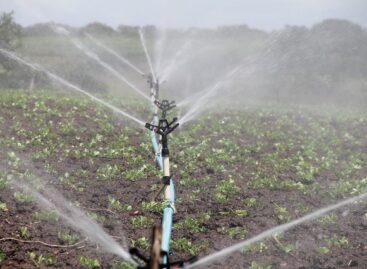National economy considerations
At a conference organised by the National Association of Plant Based Food Manufacturers and Distributors (NÉGYOSZ), Zombor Berezvai, assistant professor at Corvinus University of Budapest analysed the business and national economic benefits of plant-based food production.
This article is available for reading in Trade magazin 2024/5

Zombor Berezvai
assistant professor
Corvinus University
Budapest
The most important conditions for a more sustainable domestic food economy and diet include reducing food waste, using conservation agriculture methods, introducing alternative sources of plant protein and cutting down on the consumption of animal products.
Opportunities
In a world where consumers are increasingly aware of the environmental and health impacts of their dietary choices, governments are finally trying to build a road leading to a more sustainable, plant-based future. The European Commission says it would be ideal if Europeans ate beef and pork less than three times a week. Building a market environment and infrastructure that supports innovation and related funding would be essential for the domestic food industry. The assistant professor told entrepreneurs should invest in this new category, which offers great potential: real entry and international sales potential, a higher added value area from smaller funding, growing domestic consumer demand that can be met by domestic products, prices in the category are high, so entry is attractive, R&D can be financed and crop products can be sold at significantly higher prices.
How much do consumers pay?
Meat and milk are much more expensive for all of us in Hungary than the prices in the shops indicate, says Zombor Berezvai. In 2021 dairy cattle and pig farming alone generated a nearly HUF 30bn loss for the national economy, and these figures don’t even include the investment in assets or the profits of farmers, just the operating loss, which is financed by the Hungarian state and therefore by all of us. Fruit and vegetable growing and processing, done with a much smaller state subsidy, is already a more value creating and profitable sector than livestock farming – and let’s not forget that the former is subject to the highest VAT rate of 27%, while the VAT is just 5% for milk and pork. We need to reform the system of agricultural funding, because supporting the development of crop product paths offers much more national economic benefits.
Balance sheet
What is more, the picture is even bleaker if we take a look the cost-income ratios for each sector, based on data from the Farm Accountancy Data Network (FADN) of the Institute of Agricultural Economics (AKI). The data allow us to see how profitable different farms are and how much of the profit is made up by state subsidies. By subtracting state subsidies from the operating profit (which is essentially the difference between total income and total costs), we obtain how profitable the different sectors would be without state subsidies. From this we can see that between 2007 and 2021 pig, dairy and beef farms have suffered massive losses in almost every year. Not only did the state finance the entire profit of these farms, but it also had to compensate them for their losses. Meanwhile fruit and vegetable production is a profitable sector even without state subsidies. //
Related news
NAK: farmer needs assessment can help the development of irrigation training
🎧 Hallgasd a cikket: Lejátszás Szünet Folytatás Leállítás Nyelv: Auto…
Read more >Related news
Nestlé to sell remaining ice-cream assets but commits to Froneri venture
🎧 Hallgasd a cikket: Lejátszás Szünet Folytatás Leállítás Nyelv: Auto…
Read more >40 secure jobs, sustainable solutions – new BURGER KING® in Csepel
🎧 Hallgasd a cikket: Lejátszás Szünet Folytatás Leállítás Nyelv: Auto…
Read more >







